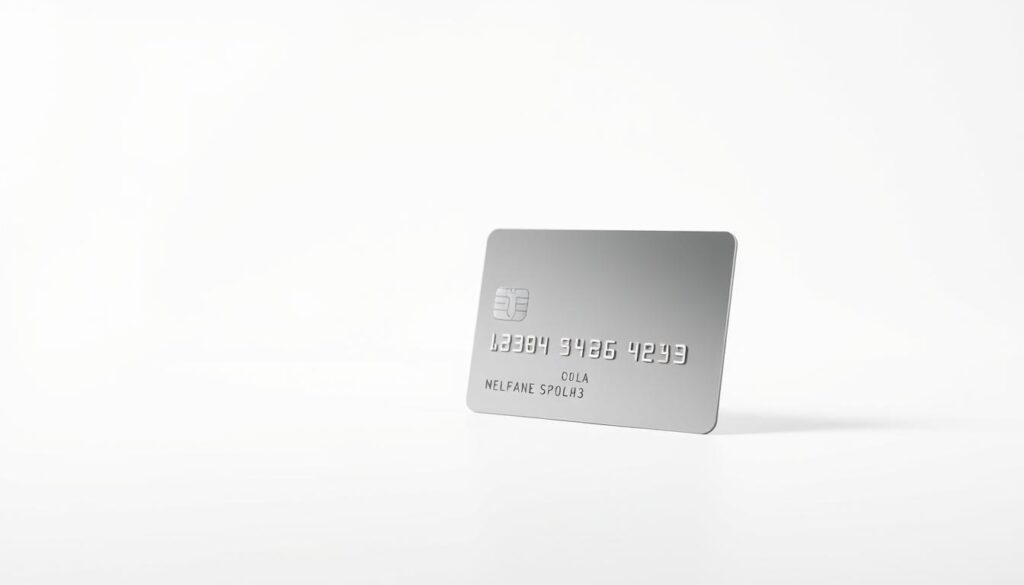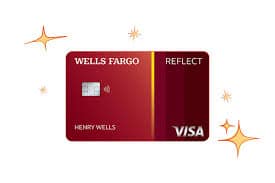Anúncios
Choose your credit card limit
Credit cards are an important part of modern personal finance. They can offer convenience, rewards, and purchasing flexibility — but only when used responsibly. Understanding how they work is essential to avoiding unnecessary debt and protecting your credit score.
Anúncios
This guide covers what a credit card is, how it operates, the main types available, the benefits and costs, how it compares to other payment methods, and strategies for responsible use. By the end, you’ll have a solid foundation to make informed decisions and get the most out of your credit card while safeguarding your financial health.

Chime Credit Builder Card

What Is a Credit Card?
A credit card is a physical or digital payment tool issued by a bank or financial institution. It allows you to borrow funds up to a set limit to pay for purchases or, in some cases, withdraw cash. You then repay the borrowed amount, either in full each month or over time, potentially with interest.

Discover It Cash Back
The main appeal of a credit card is that it lets you buy now and pay later, which can be useful for managing cash flow, earning rewards, and building a credit history. However, this same feature can lead to financial trouble if spending isn’t controlled.
How Credit Cards Work
Every credit card comes with a credit limit — the maximum amount you can borrow at one time. Your limit is determined by factors like your income, credit score, and repayment history. Attempting to exceed your limit can lead to declined transactions or over-limit fees, so it’s important to monitor your balance.

Wells Fargo Reflect Credit Card
When you make a purchase, the transaction is authorized by your card issuer and the amount is added to your balance. At the end of your billing cycle, you’ll receive a statement showing your total owed, the minimum payment due, and the payment deadline. Paying your balance in full avoids interest charges. Paying only the minimum will result in interest being added, and late payments can hurt your credit score.
Common Types of Credit Cards
Understanding the different card types helps you choose one that aligns with your spending habits and financial goals.
Rewards Credit Cards
These cards offer cashback, points, or miles for every dollar spent. Some target specific spending categories like dining, travel, or groceries, while others provide flat-rate rewards on all purchases. They are most valuable for cardholders who pay their balances in full each month and want to maximize everyday spending.
Low-Interest Credit Cards
Ideal for those who sometimes carry a balance, these cards have lower annual percentage rates (APRs) than standard cards. Some offer a 0% introductory rate for purchases or balance transfers, making them useful for paying off debt without additional interest.
Student Credit Cards
Designed for college students with limited or no credit history, student cards typically have lower limits and simple reward structures. Approval may require proof of income or a co-signer. They are a good first step toward learning responsible credit use.
Benefits of Using a Credit Card
When managed well, credit cards can be a powerful financial tool.
Building Credit History
Regular on-time payments and low credit utilization demonstrate reliability to lenders, improving your credit score. A strong credit history makes it easier to secure favorable loan terms for major purchases like a home or car.
Earning Rewards
Rewards programs allow you to accumulate cashback, points, or travel miles on purchases you already make. Redeeming these rewards can help offset costs or fund trips, offering extra value for your spending.
Financial Flexibility
Credit cards provide the ability to make large purchases or cover emergencies, even if you don’t have cash on hand. This flexibility can be crucial for unexpected expenses — provided you have a plan to repay the balance quickly.
Purchase Protections
Many credit cards include benefits such as extended warranties, purchase protection against theft or damage, and travel insurance.
Costs Associated With Credit Cards
It’s important to understand the potential costs so you can avoid paying more than necessary.
Interest and APR
The APR is the cost of borrowing money with your credit card. Rates can vary based on transaction type — for example, purchases, balance transfers, and cash advances may each have different rates. Carrying a balance from month to month will trigger interest charges unless you have a promotional 0% rate.
Annual Fees and Other Charges
Some credit cards have an annual fee, which can be worth paying if the rewards and benefits outweigh the cost. Other possible charges include late payment fees, foreign transaction fees, balance transfer fees, and cash advance fees. Reading the card’s terms will help you anticipate and avoid these expenses.
Credit Cards vs. Other Payment Methods
Credit cards aren’t the only way to make purchases, and it’s useful to understand how they compare.
Debit Cards
Linked directly to your bank account, debit cards withdraw money immediately when you make a purchase. This helps prevent debt, but they don’t build your credit history and generally offer fewer protections.
Prepaid Cards
These are loaded with a set amount of money and can be used until the balance runs out. They can help with budgeting but often come with higher fees and, like debit cards, won’t help you build credit.
Tips for Responsible Credit Card Use
The key to benefiting from credit cards is using them in a way that avoids debt and maintains your credit health.
Stay Within Your Budget
Set a monthly spending limit based on your income and expenses. Track your purchases to ensure you don’t exceed this limit, and avoid impulse buying just because credit is available.
Track Your Spending
Review your credit card statements regularly to see where your money is going. Many issuers provide online tools or mobile apps that categorize transactions, making it easier to spot trends and adjust your budget.
Pay Your Bill On Time
Timely payments are one of the most important factors in maintaining a good credit score. Set up automatic payments or payment reminders to avoid late fees and interest charges.
Managing Credit Card Debt
Debt management is critical for keeping your finances healthy. If you carry a balance, focus on repayment strategies.
Pay High-Interest Balances First
Allocating extra payments to the card with the highest interest rate can save money over time.
Avoid Adding New Debt
Try to limit credit card use for non-essential purchases until you’ve paid down existing balances.
Consider Consolidation
Balance transfer offers or personal loans can simplify repayment and potentially lower your interest rate, but always factor in any transfer fees.
When to Seek Professional Help
If you struggle to make even minimum payments, rely on credit cards for daily expenses, or feel stressed about your debt, it may be time to get help. Credit counseling agencies and financial advisors can work with you to develop a plan, negotiate with creditors, and provide tools for regaining control over your finances.
Conclusion
Credit cards can be a valuable part of your financial toolkit when used with discipline and understanding. They offer convenience, the potential for rewards, and an opportunity to build credit — but they also come with risks if mismanaged.
By choosing the right card for your needs, understanding its terms, keeping spending within budget, and paying on time, you can enjoy the benefits without falling into debt. Responsible credit card use supports your financial goals, improves your credit profile, and gives you greater control over your money in the long term.
FAQ
What is a credit card?
A credit card lets you borrow funds up to an approved limit for purchases or cash withdrawals, with repayment required over time. Interest may apply if the balance is not paid in full each month.
How does using a credit card help build credit?
Consistently paying on time and keeping your balance low relative to your limit helps establish a positive credit history, which improves your score and borrowing options.
What are the benefits of rewards credit cards?
They offer cashback, points, or miles for purchases, which can be redeemed for travel, merchandise, or statement credits.
What should I know about annual fees?
Some cards charge an annual fee in exchange for enhanced benefits. Evaluate whether the value you receive from rewards and perks outweighs the cost.
How can I avoid overspending with my credit card?
Set a monthly budget, track your spending, and avoid unnecessary purchases. Paying your balance in full each month keeps debt and interest charges away.
What is the difference between credit cards and debit cards?
Credit cards borrow from a credit line and can build your credit history. Debit cards withdraw from your bank account and typically offer fewer protections.
What should I do if I have overwhelming credit card debt?
Seek help from a financial advisor or credit counseling service. They can assist in creating a repayment strategy and negotiating with creditors.



